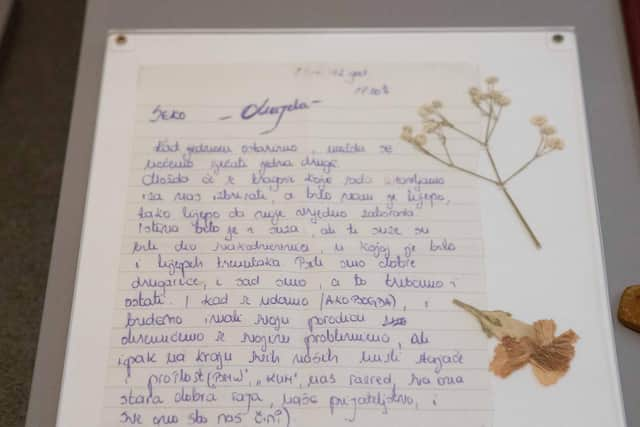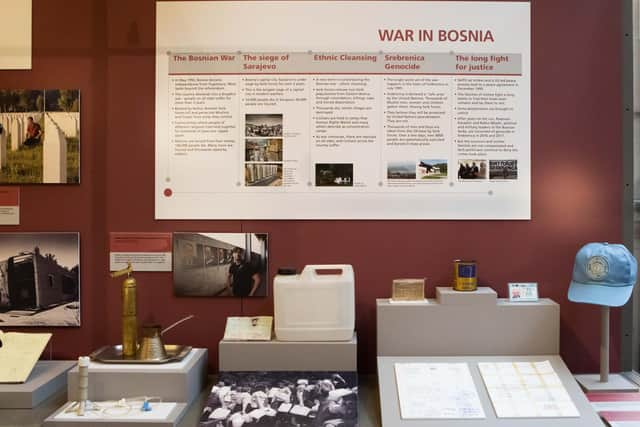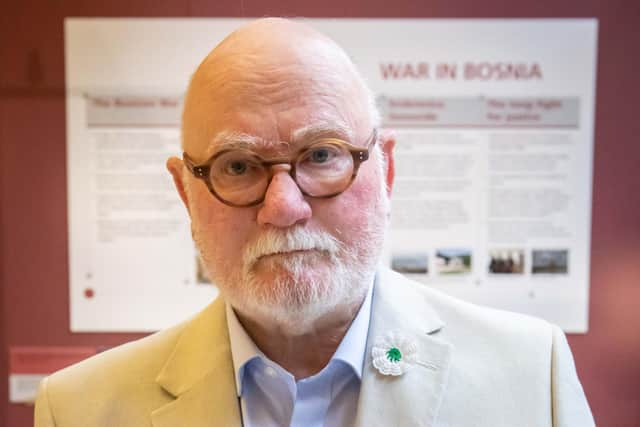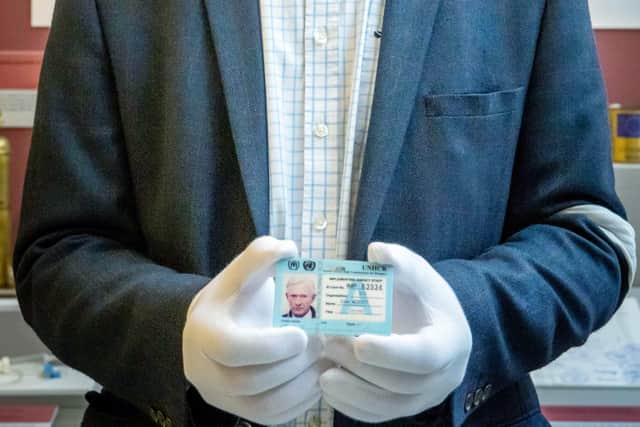Connections between Scotland and Srebenica massacre explored in exhibition
The exhibition in the Community Gallery at Kelvingrove Art Gallery and Museum in Glasgow includes a unique collection of personal items from Bosnians who now live in Scotland and from Scots who travelled to Bosnia to deliver aid and help uncover the truth about the genocide.
The ID card belonging to Elvira Mujkanović, who was held in a concentration camp with her family before the Red Cross helped her flee to Scotland, will be shown alongside a letter from Elvira’s best friend that details her hopes for a future when they would both be married and have children.
Advertisement
Hide AdAdvertisement
Hide AdOnly three days later the friend was murdered by Serb soldiers at the age of just 17.


Alongside the ID card is an international refugee camp registration certificate belonging to Jasmin Mujkanovic, who was held and mistreated along with thousands of others in another concentration camp. Jasmin and Elvira, each convinced the other had died, were eventually reunited in Croatia and later married.
In July 1995, Bosnian Serb forces led by General Ratko Mladić massacred 8,372 Bosnian Muslim men and boys at Srebrenica.
Twenty-six years on, there are still families searching for the bodies of their loved ones. However, there is still denial about the atrocities which took place.
The exhibition, which will run until November, was originally planned for the 25th anniversary of the war in 2020, but was delayed due to the coronavirus pandemic.


It opens as the world marks White Armband Day, which takes place every May 31 to remember the campaign of ethnic cleansing that took place in the town of Prijedor, northern Bosnia-Herzegovina, when the Serb wartime authorities ordered non-Serbs to mark themselves and their homes with white armbands and sheets.
A United Nations cap belonging to forensic technician Robert McNeil, from Glasgow, who helped uncover mass graves in Bosnia, is part of the exhibition.
He said: “The UN cap was given to me when I first arrived in Bosnia in 1996. I wore it throughout my numerous deployments to Bosnia, particularly to Srebrenica and then to Kosovo, and I hang on to it because it’s a constant reminder of the work I was engaged with out there.


Advertisement
Hide AdAdvertisement
Hide Ad“It’s a forgotten war in a lot of ways, and it’s a reminder of the genocide that happened there.”
Charity Remembering Srebrenica Scotland has organised nearly 20 delegations to Srebrenica since 2015, including First Minister Nicola Sturgeon.
David Hamilton, secretary and treasurer of the charity, volunteered as an aid convoy driver during the war.
His parents-in-law Alan and Christine Witcutt – whose ID card is part of the exhibition – also delivered aid from Scotland to Bosnia.


Mr Hamilton said: “My late father-in-law and his wife Christine Witcutt went out to Bosnia in 1992 and sadly when they left Sarajevo, Christine was shot by sniper and died.
“So it’s very poignant to come back here and see Alan’s ID card in this exhibition, which shows the connection Scotland had with Bosnia during that terrible time.”
A message from the Editor:
Thank you for reading this article. We're more reliant on your support than ever as the shift in consumer habits brought about by Coronavirus impacts our advertisers.
If you haven't already, please consider supporting our trusted, fact-checked journalism by taking out a digital subscription.
Comments
Want to join the conversation? Please or to comment on this article.
